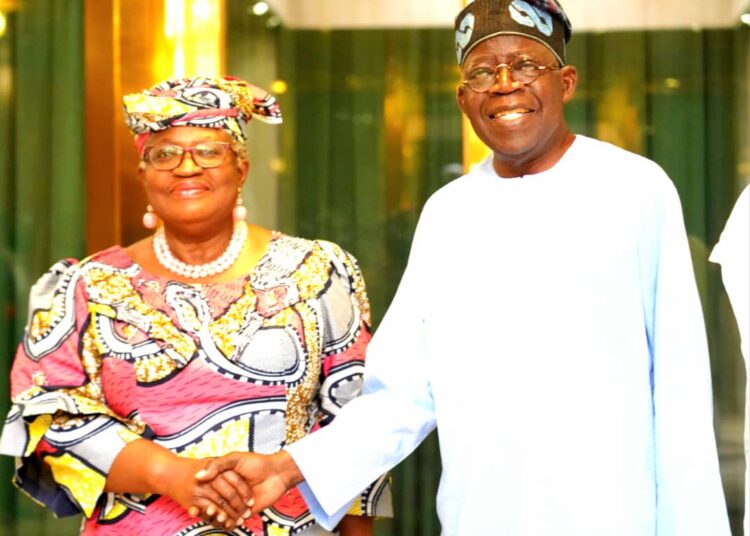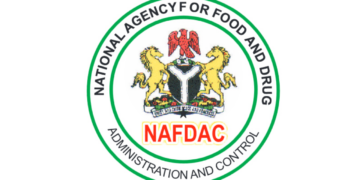In a significant move to address the pressing challenges faced by Nigerians, the Director-General of the World Trade Organisation (WTO), Dr. Ngozi Okonjo-Iweala, has engaged in a collaborative effort with Nigeria’s President, Bola Tinubu.
Dr. Okonjo-Iweala, in a chat with State House correspondents after a meeting with President Tinubu at the State House, Abuja, on Tuesday, expressed her appreciation for the opportunity to meet with the President, along with a Minister-designate, Dr. Muhammad Ali Pate, to explore ways in which support could be extended to Nigerians during these trying times.
While emphasising that her visit was not an official WTO mission, Okonjo-Iweala highlighted the urgency of the situation, acknowledging the difficulties faced by Nigerians on various fronts.
She highlighted the pressing need to extend support to Nigerians during these challenging times, acknowledging the hardships faced by the Nigerian populace abroad.
Acknowledging the WTO role, Okonjo-Iweala revealed ongoing efforts to collaborate with Nigerian women entrepreneurs, particularly in small and medium-scale enterprises.
She said the aim was to enhance the quality of their products, expand international trade, and facilitate digital trade initiatives.
She said, “we saw the President and focused on how do we support Nigerians at this time of need.
“We all know that things are very difficult for Nigerians outside, everyone is struggling. I’m here myself on a quiet visit. So this was not really an official WTO mission, but we’re able to engage with Mr. President, talk about what are the kinds of programmes that could be put in place to make sure that the suffering of Nigerians are being alleviated.
“And we had a really good conversation on trying to look at the community and grassroots programmes that can be put in place to create jobs for young people, trying to support women and children, who are bearing the brunt of some of the suffering in the country.
“We talked about how for the longer term we need to do that investment opportunities that Nigeria can seized, including in the pharmaceutical industry.
“We also talked about the what type of support the World Trade Organization can bring. We’re already working in Nigeria with women in particular, who own small and medium enterprises to try to help them upgrade the quality of their products.
“Whether it’s in the agricultural area, in textiles and in other areas so that they can sell more internationally.
“We’re trying to help them with digital trade, the wave of the future digital trade, so how do we train and empower Nigerian women and owners of small and medium enterprises support so they can trade more and create more jobs?
“So that’s what’s needed now, helping Nigerians to alleviate the difficult conditions that they are in.
“So that is what we discussed with Mr. President and as the Director General of the World Trade Organization, we are going to try to do the most we can to support Nigerians and this particular time.
On his part, minister-designate, Ali Pate, highlighted the core objectives of the visit by the WTO Director-General.
He echoed the sentiment that President Tinubu was acutely aware of the challenges faced by the population and remains steadfastly committed to alleviating their hardships.
He said the conversation revolved around a multi-pronged approach, targeting vulnerable groups such as women, children, and youth, while also exploring avenues for attracting crucial investment to stimulate economic growth.
Pate emphasised the transitory nature of the difficulties currently being encountered and expressed optimism that President Tinubu’s visionary leadership would guide Nigeria towards a stronger and more united future.
Notably, he said the President also shared insights into his healthcare vision, recognising the universal significance of health-related policies and regulations.
Pate underscored the importance of addressing basic ailments such as malaria and providing vaccinations, and commended President Tinubu’s commitment to bolstering both primary healthcare systems and hospital care.






